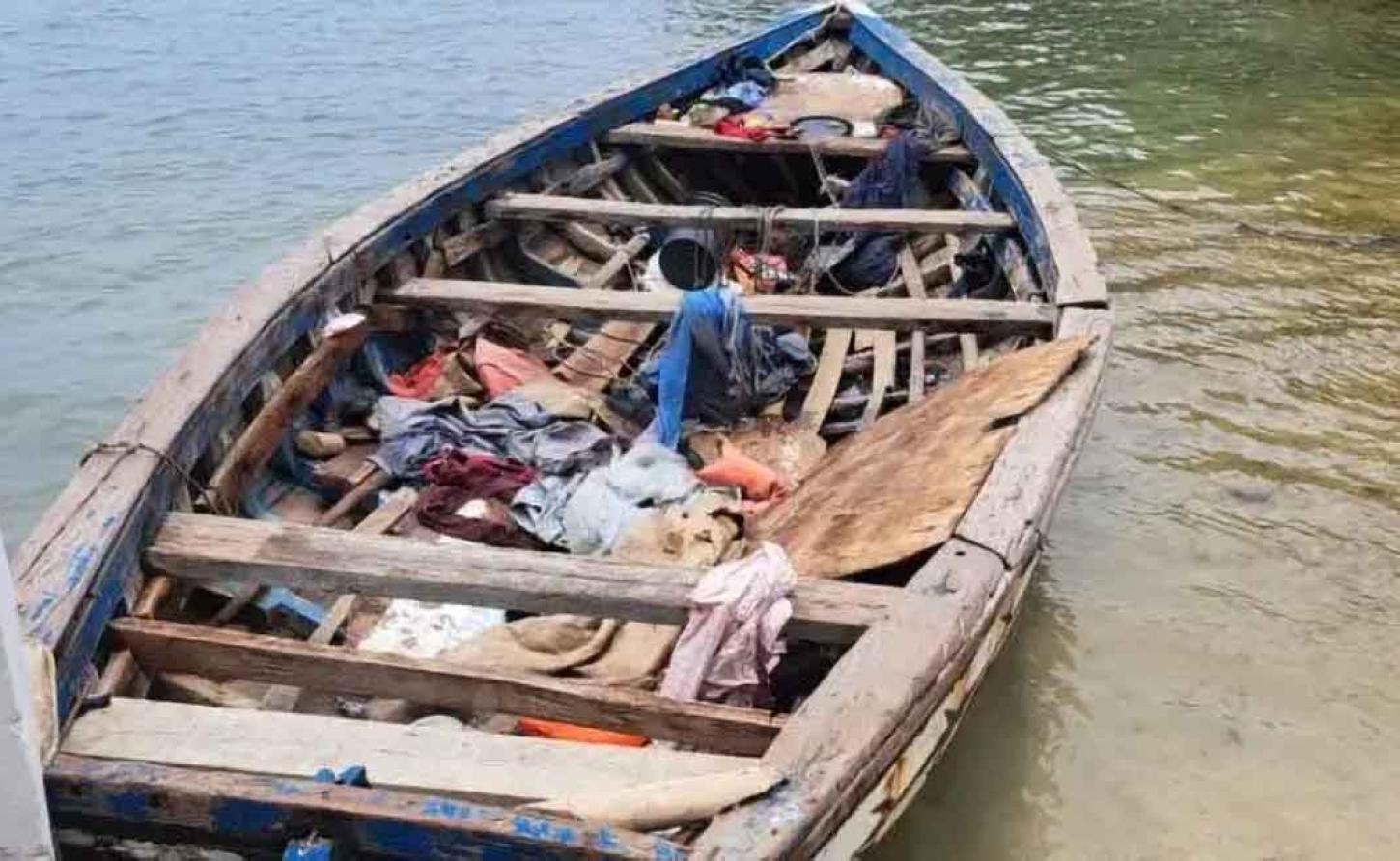JAMAICA | Haitians Desperate Flight: Jamaican Rapid Repatriation Programme Faces New Scrutiny

Montego Bay, Jamaica – May 19, 2025 - As a boat carrying 42 desperate Haitians—men, women, children, and even an infant—washed ashore near Ross Craig in East Portland on Sunday, Jamaica's controversial rapid repatriation program faces renewed scrutiny amid growing international concern over the treatment of those fleeing Haiti's catastrophic gang violence.
The latest arrivals, who explicitly cited persecution, gang warfare, and sexual violence as their reasons for fleeing, represent just a fraction of the approximately 220 Haitians who have sought refuge in Jamaica since 2024.
Most have been swiftly returned under a contentious repatriation program implemented by the Ministry of National Security, raising serious questions about Jamaica's compliance with international refugee protections.
Following their arrival, Jamaican police, supported by members of the Jamaica Defence Force, transported the Haitian nationals to a holding area at Castle Police Station near Priestman's River. There, the refugees underwent screening and medical examinations while their fate hung in the balance—a scene that has become distressingly familiar on Jamaica's shores.
Malene Alleyne, attorney and founder of Freedom Imaginaries, is advocating for a break in this pattern of returns. "We are hoping the government will give consideration to offering asylum to this latest batch of Haitians," Alleyne stated, highlighting the legitimate grounds for protection that these refugees present.
The Haitian arrivals have shared harrowing accounts of conditions in their homeland, describing gangsters actively engaged in murder and plundering throughout sections of Haiti, including the capital Port-au-Prince. Their testimonies align with reports from international observers, who have documented the collapse of civil order in what was already the Western Hemisphere's poorest nation.
Minister of Foreign Affairs and Foreign Trade, Kamina Johnson Smith, has previously defended the government's position on Haitian arrivals, insisting that Jamaican laws must be respected. "We have not taken a fixed policy position in respect of Haitian arrivals in Jamaica, but at this point in time we know that we are creatures of international law and we are always guided by that in terms of rules of asylum and refugee status," Johnson Smith stated.
She has maintained that Haitians are treated as "illegal entrants" when no specific asylum claims are made—a position that appears increasingly untenable given the explicit statements of persecution now made by the latest arrivals.
The minister's justification stands in stark contrast to the harrowing statistics from Haiti: over 5,600 people killed in gang-related violence this year alone, with the death toll rising daily. More than one million Haitians have been forcibly displaced, their homes abandoned, their futures uncertain. Women and children bear the heaviest burden, comprising over half of those displaced and facing systematic sexual violence as gangs weaponize rape to terrorize communities.
International law leaves no ambiguity in this matter. The United Nations High Commissioner for Refugees has specifically urged countries to suspend forced returns to Haiti—guidance that Jamaica's rapid repatriation program has consistently disregarded.
Forcibly returning individuals to places where they face persecution, torture, or irreparable harm—known as refoulement—stands explicitly prohibited under refugee and human rights frameworks. Equally forbidden are collective expulsions and arbitrary detentions, tactics that human rights advocates argue have characterized Jamaica's approach to Haitian arrivals for over a year now.
As the Jamaican government deliberates the fate of these 40 individuals, Freedom Imaginaries has renewed its call for the establishment of a comprehensive regional framework for protecting Haitian refugees. The advocacy group emphasizes that this latest arrival is not an isolated incident but part of a growing regional crisis that demands coordinated, humane solutions across the Caribbean.
The organization has outlined seven critical steps Jamaica must take:
First, adopt refugee legislation that properly implements Jamaica's obligations under international law, particularly regarding non-refoulement. The current legal vacuum leaves refugees in a dangerous limbo, their fates determined by administrative whim rather than legal right.
Second, establish transparent asylum procedures that individually analyze each case, with special attention to vulnerable populations such as women, children, and survivors of gender-based violence. The current ad hoc approach fails to meet even minimal standards of procedural fairness.
Third, ensure due process in all proceedings related to deportation or detention. Migrants must have access to legal aid, qualified interpreters, and information about their rights in languages they understand—basic requirements of procedural justice currently absent in many cases.
Fourth, end collective expulsions and arbitrary detentions. Mass deportations without individual assessments represent a flagrant violation of international norms. Detention should be an exceptional measure, not the default response to human movement.
Fifth, create reception facilities that meet international standards for safety and dignity—a far cry from the overcrowded, under-resourced holding centers currently in use.
Sixth, establish a CARICOM Regional Fund to implement humanitarian and integration measures, with Jamaica designating a national coordinator to oversee protection efforts on the ground. Regional cooperation is essential in addressing what is fundamentally a regional challenge.
Finally, introduce Temporary Protection arrangements for Haitian nationals, providing immediate safeguards while more permanent solutions are developed. Such measures would offer critical breathing room in the asylum process.
As nightfall descends on the holding facility where the 40 Haitians await their fate, the pattern of the past year suggests they may soon join the approximately 180 countrymen who have been returned to Haiti's violence-plagued streets under Jamaica's repatriation program.
Their uncertain future represents not just individual human tragedies, but a test of Jamaica's commitment to international refugee protections at a time when Haiti's crisis shows no signs of abating.
The question now becomes whether this group—whose explicit claims of persecution may be harder to dismiss—will receive the asylum consideration that Freedom Imaginaries advocates, or whether Jamaica's controversial rapid repatriation program will continue unabated despite mounting evidence of the dangers awaiting returnees in Haiti.
-30-
